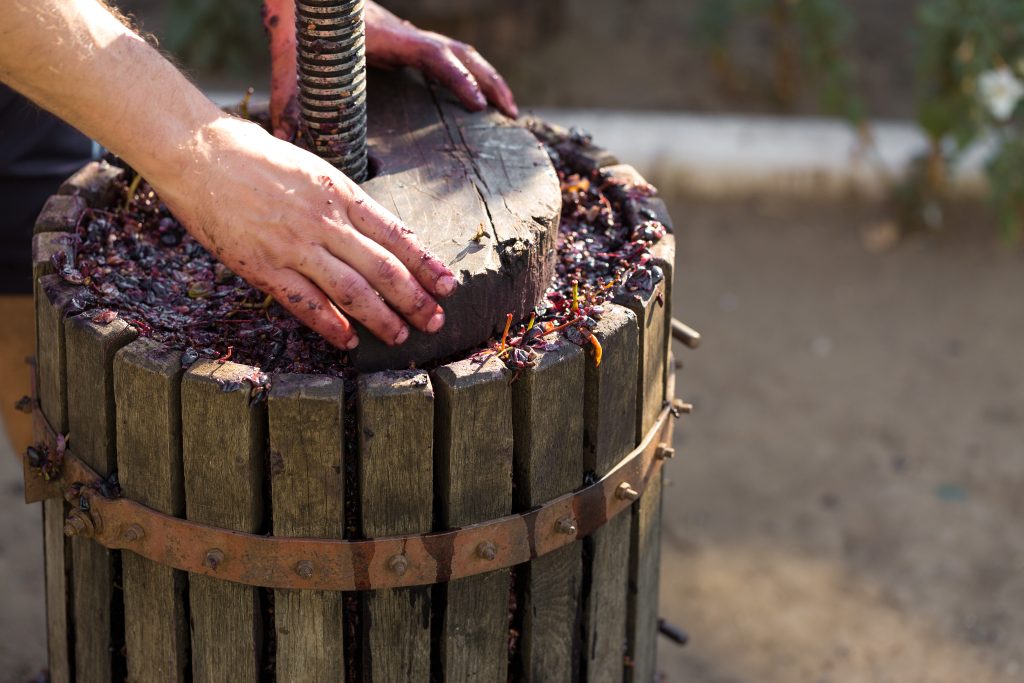Are you ready to embark on a journey through the world of winemaking in Israel? Discover the captivating blend of tradition and innovation as Israeli winemakers passionately craft sustainable wines. In this article, we will explore how they strike a delicate balance, honoring ancient customs while embracing modern techniques. Uncover the fascinating history of winemaking in Israel, from its decline to its impressive revival. We will delve into the success story of Psagot Winery, renowned for its award-winning wines and commitment to achieving balance in a challenging climate. Additionally, we will explore the global reception of Israeli wines, the advantages of modern winegrowing methods, and the challenges faced in sustainable production. Join us as we uncover the captivating world of sustainable winemaking practices in Israel.
Contents
- Historical Background of Israeli Winemaking
- Success Stories of Sustainable Winemaking in Israel
- Global Recognition and Market Demand for Israeli Wines
- Advantages of Modern Winegrowing Techniques
- Definition and Perspectives on Sustainability in Wine Production
- Challenges in Achieving Sustainable Wine Production
- Research and Publications on Sustainable Viticulture
- Consumer Perception and Market Trends in Sustainable Wines
- Regulations and Certification for Organic and Biodynamic Winemaking
- Embracing Innovation for Sustainable Viticulture
Historical Background of Israeli Winemaking
Israeli winemaking has a rich historical background that dates back centuries. Its historical significance can be traced through the cultural influences, revival efforts, biblical connections, and even the challenges faced under Ottoman Empire control. Winemaking in Israel flourished during biblical times, with references to vineyards and wine production found throughout the Old Testament. However, the industry declined over the centuries due to cultural factors and external influences. It wasn’t until the late 1800s when Edmond de Rothschild reintroduced winemaking to the region that a revival began to take place.
Since then, Israeli winemakers have worked tirelessly to reclaim their place in the global wine industry. Today, Israel produces over 33 million bottles of wine each year and has gained recognition for its quality and diverse range of wines. The biblical connections to winemaking, coupled with the unique terroir of the region, contribute to the distinct character of Israeli wines.
Despite the challenges faced under Ottoman Empire control and Islamic restrictions, Israeli winemakers have persevered and succeeded in establishing a thriving industry. The revival efforts have not only brought economic benefits but have also showcased the rich cultural heritage of winemaking in Israel. The historical significance of Israeli winemaking cannot be understated, as it represents the resilience and determination of the people to preserve their traditions and create world-class wines.
Success Stories of Sustainable Winemaking in Israel
One notable success story in sustainable winemaking in Israel is the implementation of innovative practices at Psagot Winery. This winery has made significant strides in environmental initiatives, community involvement, sustainable packaging, water conservation, and energy efficiency.
Psagot Winery has taken a proactive approach to environmental initiatives by implementing sustainable practices throughout their operations. They have embraced organic and natural techniques, ensuring the preservation of soil health and biodiversity. Additionally, they have integrated cover crops into their vineyards to aerate and soften soils, while also encouraging the growth of beneficial microorganisms.
Community involvement is another area where Psagot Winery excels. They actively engage with the local community by hosting events, offering tastings, and providing educational programs about sustainable winemaking practices. By fostering these connections, they not only contribute to the local economy but also raise awareness about the importance of sustainable agriculture.
Psagot Winery also prioritizes sustainable packaging. They have made a commitment to using eco-friendly materials for their bottles and labels, reducing their carbon footprint and waste generation. This dedication to sustainable packaging demonstrates their commitment to environmental stewardship.
Water conservation is a critical aspect of sustainable winemaking, especially in a region with limited water resources like Israel. Psagot Winery has implemented water-saving technologies such as drip irrigation and water recycling systems. These initiatives help minimize water usage while ensuring the vines receive the necessary hydration for optimal growth.
Furthermore, Psagot Winery has made significant strides in energy efficiency. They have invested in renewable energy sources such as solar panels, which power a significant portion of their operations. By reducing their reliance on traditional energy sources, they not only reduce their environmental impact but also save on energy costs.
Global Recognition and Market Demand for Israeli Wines
Discover the growing demand and international acclaim for Israeli wines in the global market. Israeli wines have garnered attention and recognition for their exceptional quality, leading to an expansion of the market and new opportunities for winemakers. These award-winning wines have a global appeal that attracts wine enthusiasts from around the world.
One significant area of market expansion for Israeli wines is in the Asian market. The sales of Israeli wines in Asia have been steadily growing, as consumers in countries like China and Japan develop a taste for these unique and high-quality wines. This growth presents a promising opportunity for Israeli winemakers to tap into a new and enthusiastic market.
The global appeal of Israeli wines can be attributed to their exceptional craftsmanship and the unique terroir of the region. Winemakers in Israel have mastered the art of balancing tradition and innovation to create wines that stand out on the international stage. These wines have gained recognition from international winemakers and have received numerous awards for their exceptional quality.
With this global recognition and market demand, Israeli winemakers are eager to explore new market opportunities. They are constantly looking for ways to expand their reach and introduce their wines to new audiences. This drive for growth and innovation ensures that Israeli wines will continue to make waves in the global market for years to come.
Advantages of Modern Winegrowing Techniques
By incorporating modern winegrowing techniques, winemakers in Israel are able to enhance the quality and sustainability of their wines. These techniques offer numerous advantages that contribute to the overall success of the Israeli wine industry.
One of the key advantages is the innovation that comes with modern techniques. Israeli wineries have been pioneers in adopting practices such as drip irrigation and vineyard monitoring systems. These innovations have not only improved water efficiency and resource management but also allowed for better control over vineyard health.
Furthermore, modern techniques have been widely adopted by wineries worldwide, including those in California. This cross-pollination of ideas and practices has helped Israeli winemakers stay at the forefront of the industry and continuously improve their wines.
In addition, the diverse topography and geography of Israel contribute to the production of unique grapes and a broad range of wines. Modern techniques allow winemakers to fully harness the potential of their terroir and create distinct flavors and profiles in their wines.
Lastly, the adoption of ecologically balanced vineyard operations without pesticides has been another advantage of modern winegrowing techniques. This commitment to sustainability ensures that the land and environment are preserved for future generations, while also producing wines that meet the growing demand for sustainable products.
In summary, the advantages of modern winegrowing techniques in Israel include innovation, improved vineyard health, the production of unique wines, and a commitment to sustainability. These techniques have elevated the quality and sustainability of Israeli wines, making them highly sought after in the global market.
| Advantages | Techniques | Innovation | Sustainability |
|---|---|---|---|
| Improved vineyard health | Drip irrigation | Cross-pollination of ideas | Ecologically balanced |
| Unique wine production | Vineyard monitoring systems | Continuous improvement | Preservation of the land |
| Global market demand | Resource management | Distinct flavors and profiles | Commitment to sustainability |
Definition and Perspectives on Sustainability in Wine Production
What are the different perspectives on sustainability in wine production? When it comes to sustainability in wine production, there are various viewpoints that shape the definition and understanding of this concept. Here are three key perspectives to consider:
- Sustainability guidelines: The International Organization of Vine and Wine (OIV) and the International Federation of Wines and Spirits (FIVS) have established guidelines to promote sustainable practices in the industry. These guidelines focus on environmental stewardship, economic viability, and social equity.
- Consumer priorities: Consumers are increasingly concerned about sustainability and seek out wines produced with environmentally friendly practices. They prioritize organic and biodynamic wines, as well as labels that highlight sustainable production methods. This consumer demand drives wineries to adopt sustainable practices and communicate their efforts effectively.
- Lack of definition and marketing challenges: The lack of a clear and universally accepted definition for sustainability in grape and wine products poses challenges for wineries. Marketing sustainable practices can be complex, requiring effective communication and storytelling to convey the value and impact of these practices to consumers.
To achieve sustainable wine production, an integrated system is needed that considers environmental, economic, and social aspects. This holistic approach ensures that the land is left in better conditions for future generations, while also meeting consumer expectations and addressing marketing challenges. By embracing sustainability, wineries can balance tradition and innovation, creating wines that are not only of high quality but also produced with a commitment to the environment and community.
Challenges in Achieving Sustainable Wine Production
Overcoming challenges in achieving sustainable wine production requires addressing environmental, economic, and social factors. Integrated systems that take into account the entire wine production process are necessary to minimize the environmental impact. This includes managing land use, water resources, energy consumption, and waste management. By adopting sustainable practices, wineries can reduce their carbon footprint and preserve the natural resources for future generations.
In addition to environmental considerations, social aspects play a crucial role in sustainable wine production. It is important to consider the socio-economic impact of the industry on local communities, including job creation, fair wages, and community development. By prioritizing social responsibility, wineries can contribute to the well-being of the people and regions they operate in.
Economic benefits are also a key factor in achieving sustainable wine production. While investing in sustainable practices may require initial financial investments, it can lead to long-term cost savings and improved efficiency. Sustainable wineries can benefit from reduced energy and water costs, increased productivity, and enhanced marketability to environmentally conscious consumers.
However, there are knowledge gaps that need to be addressed in order to achieve sustainable wine production. It is important to gather more data and research on the environmental and economic benefits and costs of sustainable practices. This will help wineries make informed decisions and optimize their sustainability efforts.
Research and Publications on Sustainable Viticulture
To advance sustainable winemaking practices, you need to explore the wealth of research and publications available on sustainable viticulture. The field of sustainable viticulture has seen a surge in interest and investment in recent years, resulting in a high number of scientific publications on the topic. By delving into these resources, you can gain valuable insights into sustainable viticulture practices and their environmental impact, economic benefits, and social aspects. Here are three reasons why researching and reading publications on sustainable viticulture is crucial:
- Stay informed: Research publications provide up-to-date information on the latest sustainable viticulture practices and techniques. By staying informed, you can adopt innovative methods that reduce environmental impact, such as implementing organic farming practices or utilizing alternative energy sources.
- Learn from success stories: Research publications often highlight successful case studies of wineries that have implemented sustainable viticulture practices. By studying these success stories, you can gain inspiration and practical knowledge to implement similar strategies in your own vineyard.
- Make informed decisions: Research publications offer evidence-based insights into the economic benefits of sustainable viticulture. By understanding the financial advantages, such as cost savings and increased market demand for sustainably produced wines, you can make informed decisions that align with both your environmental and economic goals.
Consumer Perception and Market Trends in Sustainable Wines
When considering sustainable wines, it is important to understand the consumer’s perception and market trends. Consumer preferences play a significant role in shaping the demand for sustainable wines. Today’s consumers are increasingly conscious of the environmental impact of their choices and are seeking products that align with their values. They are willing to pay a premium for sustainably produced wines, recognizing the efforts and commitment of wineries towards sustainability.
Market trends also play a crucial role in driving consumer behavior. As sustainability becomes a more prominent topic, the market for sustainable wines is expanding. Wineries that prioritize environmental communication and clearly convey their sustainable practices are gaining traction among consumers. By highlighting their commitment to sustainable production methods, wineries can attract environmentally conscious consumers and differentiate themselves in a crowded marketplace.
Consumer behavior is constantly evolving, and wineries need to stay attuned to these changes. Understanding market trends and consumer preferences allows wineries to adapt and meet the demands of their target audience. By aligning their practices with sustainable principles, wineries can not only contribute to environmental conservation but also tap into a growing market segment.
Regulations and Certification for Organic and Biodynamic Winemaking
To ensure transparency and credibility in organic and biodynamic winemaking, regulations and certification processes have been established to monitor and validate sustainable practices. These regulations, such as those outlined by the EU, provide a framework for winemakers to follow in order to meet specific criteria for organic and biodynamic production. Labelling systems have also been implemented to clearly identify wines that have been produced using these sustainable methods, allowing consumers to make informed choices.
One prominent certification for biodynamic winemaking is the Demeter certification. This certification ensures that producers adhere to strict standards that go beyond organic farming practices. It focuses on holistic and regenerative farming methods that prioritize the health of the soil and the overall ecosystem. By achieving Demeter certification, winemakers demonstrate their commitment to sustainability and environmental stewardship.
Market analysis has shown that there is a growing demand for organic and biodynamic wines, with consumers increasingly seeking out these products. This is driven by a desire to support sustainable practices and reduce the environmental impact of wine production. By adhering to the regulations and certification processes for organic and biodynamic winemaking, wineries can tap into this market and attract environmentally conscious consumers.
Embracing Innovation for Sustainable Viticulture
By embracing innovative methods in viticulture, you can enhance sustainability in your winemaking practices. One important aspect of sustainable viticulture is biodiversity promotion. By increasing and enhancing biodiversity around your vines, you can create a more balanced and resilient ecosystem. This can be achieved through various methods such as planting native flowering plants to attract beneficial insects, birds, and other wildlife.
Another innovative technique is the use of cover crops. These crops, planted between the rows of vines, serve multiple purposes. They help aerate and soften the soil, improve water retention, and provide habitat for beneficial organisms. Additionally, cover crops can be cut in May and left on the ground as a thermal blanket, protecting the soil from extreme temperatures and erosion.
Incorporating organic techniques into your viticulture practices is also crucial for sustainability. By avoiding synthetic pesticides and fertilizers, you can protect the soil from chemical contamination and promote the health of your vineyard. Organic methods focus on building and maintaining soil fertility through the use of compost, natural amendments, and cover cropping.



